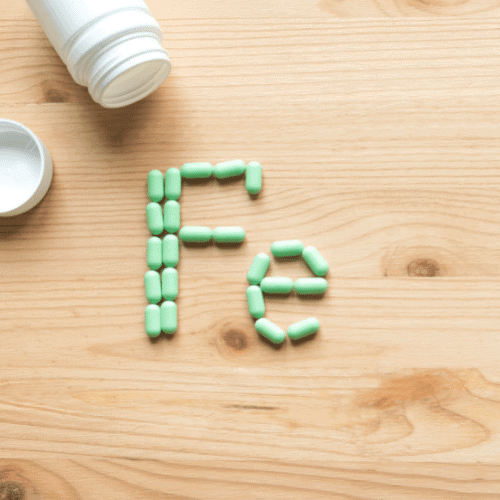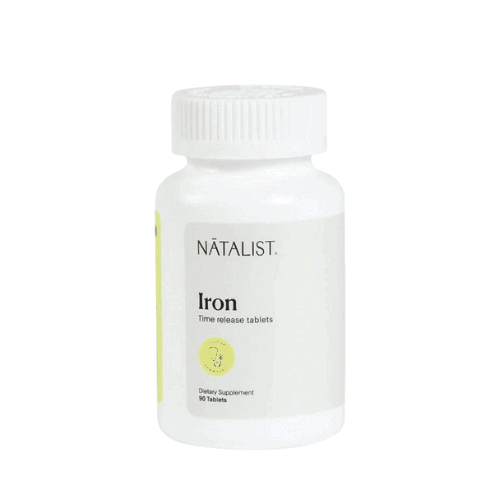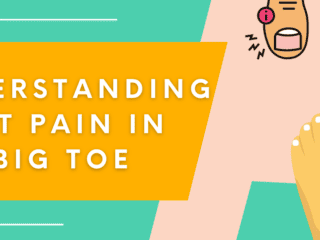Iron supplements come in handy in reversing low iron levels or treating iron deficiency anemia. But what happens when you stop taking iron pills? Do they cause side effects? Or are you better off without them? Read on to learn more:
Why Iron Is Important For The Body
While many people don’t think much of it, iron is actually the most common nutritional deficiency worldwide. According to an estimate by the World Health Organization, up to 30% of the world’s population suffers from iron deficiency anemia (IDA).
Iron deficiency anemia stems from a lack of red blood cells. Iron is an important component of hemoglobin, the substance in red blood cells that has about two-thirds of the body’s iron and carries oxygen from the lungs to transport it throughout your body. If you don’t have enough of it, the body can’t produce enough healthy oxygen-carrying red blood cells.
The lack of oxygen in the body can result in exhaustion, affecting your cognitive functions and compromising your immune system’s ability to fight off infections. It also hinders healthy nail and hair growth. Women, in particular, suffer more from iron deficiency, especially when they’re menstruating or are pregnant; severe iron deficiency may increase your baby’s risk of being born prematurely.

How Do Iron Pills Work?
Taking iron pills can help supplement low iron levels or treat iron deficiency anemia. They can produce results quicker than diet interventions and are often considered the treatment method for such. These supplements can be particularly helpful among people prone to low iron levels, especially if they can’t maintain good iron levels through eating alone or other conditions such as the following:
- Pregnant women
- Women with heavy periods
- Frequent blood donors
- Cancer patients
- People with gastrointestinal disorders, such as celiac disease or Crohn’s disease
- People who have undergone gastric surgery
- Patients with a history of heart failure
- People regularly partaking in heavy exercise
- Vegetarians and vegans
- People taking too many antacids, which can prevent your body from absorbing iron
- Patients who are actively taking iron-depleting medications.
Iron supplements come in capsules, chewable tablets, and liquids, with 325 mg (ferrous sulfate) being the most common tablet size. Other common chemical forms available are ferrous gluconate and ferrous fumarate.
Studies show that women, especially those of reproductive age, need at least 14 – 18 mg of iron daily and can largely benefit from iron supplementation since their daily iron needs increase as they age. They need more iron because factors like menstruation and pregnancy put them at higher risk of iron deficiency anemia. Once they undergo menopause, their demand for iron fluctuates and becomes at par with men’s (8 mg)

Withdrawing From Iron Pills
Strictly following the doctor’s prescribed time and frequency of taking medications is a standard rule in all medications, especially for iron pills. But some people, after seeing certain improvements or feeling recovered, tend to gradually drop the habit and stop taking them altogether. But is it a good practice?
According to data from the NHS, iron supplements, particularly ferrous sulfate, tend to give the impression of recovery within a week of supplementation, but it may take up to a month for the medication to have its full effect on the body, so it’s important to still take them continuously and consistently as recommended.
The Anemia Guidelines for Family Medicine recommends that after the initial period of supplementation is over and the IDA is corrected; the doctor will recommend another 3 months of medicating to replenish lost iron stores and, in some cases, may need to monitor the hemoglobin and red blood cell levels for an additional 3 to 6 months.
Side Effects Of Taking Iron Pills
Before taking iron supplements, it’s important to have your iron levels checked first. Otherwise, when taken unnecessarily, they could harm your health, mainly because they typically contain high doses of iron, which can cause excess iron levels (hemochromatosis) and damage the organs, especially the heart, liver, and pancreas.
Frequently taking iron supplements that contain more than 20 mg of elemental iron at a time, even when healthy, can cause nausea, vomiting, and stomach pain, especially if the supplement is not taken with food.
Large amounts of iron can result in the inflammation of the stomach lining and cause ulcers to appear. Taking these supplements unnecessarily may also cause cell damage and, in severe cases, result in organ failure. A study found that severe iron overdose can cause acute hepatic necrosis and lead to multi-organ failure and death.
Iron supplements may sometimes interact with other drugs you might already be taking such as tetracycline, penicillin, ciprofloxacin, and certain medications used for Parkinson’s disease and seizures. You should also avoid taking milk, dairy products, calcium, and antacids simultaneously as iron supplements since they could prevent its absorption.
Wait for at least 2 hours before or 2 hours after having these medications/foods before taking them to prevent possible interactions or side effects.
Before anything else, it’s always important to consult with your healthcare professional first about getting your (or your child’s) iron levels tested before taking iron supplements, and always follow your healthcare provider’s dosage recommendations.
Takeaway
Iron supplements can help reverse an iron deficiency anemia when dietary changes alone are unsuccessful. It will benefit pregnant women, infants, young children, heavy exercisers, and those with certain medical conditions, who are more prone to low iron levels and have trouble getting enough.
When taking iron supplements, it’s important to follow your doctor’s prescription and continue taking the supplements consistently as recommended. It’s the only way to ensure to enjoy the supplement’s benefits and get enough iron for the body to function well and be in a state of prime health. Taking less or more than prescribed can result in adverse health problems.
If you think you’re experiencing symptoms of iron deficiency anemia (or even hemochromatosis), seek immediate medical care to receive proper testing and treatment. Don’t take any kind of iron supplement unless authorized by your doctor.
Disclaimer: this article does not constitute or replace medical advice. If you have an emergency or a serious medical question, please contact a medical professional or call 911 immediately. To see our full medical disclaimer, visit our Terms of Use page.








